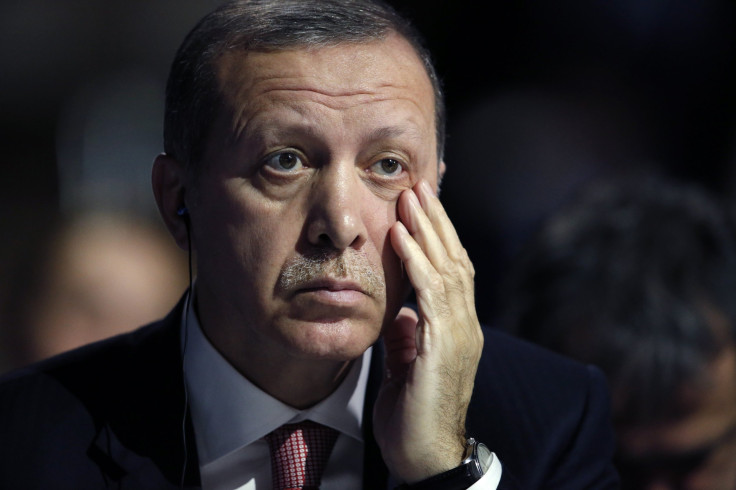Turkey Islamic State Crisis Update: Russia Claims Erdoğan Profiting From Illegal Oil Trade With ISIS

Russia went on the offensive during a Defense Ministry media briefing Wednesday alleging that top Turkish leaders, including the president, are involved in illegal oil trade tied to the Islamic State group, RFE/RL reported. Accusations directed against Turkish President Recep Tayyip Erdoğan and his family come after his government refused to apologize for last week's downing of a Russian aircraft Ankara says entered its airspace.
“Today, we are presenting only some of the facts that confirm that a whole team of bandits and Turkish elites stealing oil from their neighbors is operating in the region,” said Deputy Defense Minister Anatoly Antonov, Kremlin-backed RT reported.
The Russian Defense Ministry officials said they knew of three routes by which ISIS oil reaches Turkey, showing satellite images that allegedly showed oil tankers traveling from Syria into Turkey. The ministry alleged that Erdoğan was personally profiting from the oil trade. The ministry did not provide further evidence of its claims.
Turkish officials had denied similar allegations earlier in the week saying that Russia wanted to “cover up” its violation of Turkish airspace. Erdoğan has said in the past that he would resign if such accusations against him were proven, the Associated Press reported. The Kremlin said it did not believe the Turkish president would resign and said that was not its goal.
Russian defense ministry says Erdogan family directly involved in buying ISIS oil but didn't actually give evidence pic.twitter.com/yhWNnSQIrv
— Alec Luhn (@ASLuhn) December 2, 2015Russia began airstrikes in Syria at the end of September and claimed during the press briefing Wednesday that they have managed to cut down on oil smuggling that has helped fund ISIS.
“The revenue of this terrorist organization reached $3 million a day,” said Sergey Rudskoi, chief of the main operations directorate of the Russian general staff, Russian news agency TASS reported. “After two months of airstrikes delivered by the Russian aircraft on the terrorists, their oil revenue declined to $1.5 million a day.”
Western leaders have been skeptical of Russia’s claims about its airstrike targets, saying that some were aimed at opposition groups that pose the biggest threat to long-time Russian ally Syrian President Bashar Assad.
Relations between Moscow and Ankara have reached a new low with Russia applying sanctions against Turkish fruits and vegetables and the country’s profitable tourism industry following the Nov. 24 jet downing.
Russia also accused Turkey of sending over 2,000 fighters, 120 tons of ammunition and approximately 250 vehicles to Syria mostly likely to support terrorist groups. The Kremlin said it would reveal more information to media next week about Syrian fighters training in Turkey.
© Copyright IBTimes 2024. All rights reserved.






















